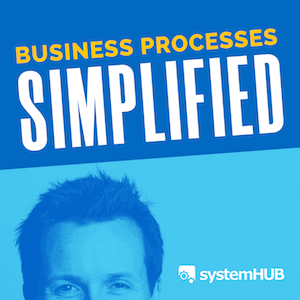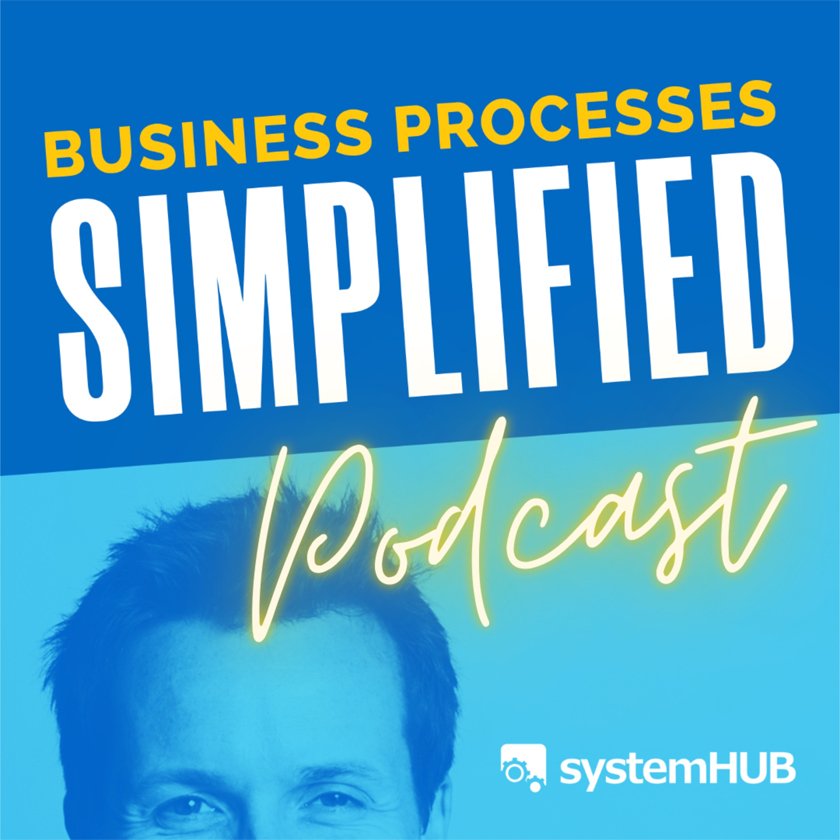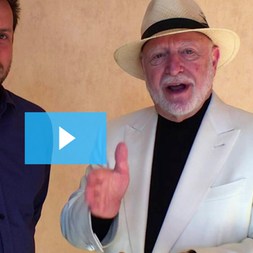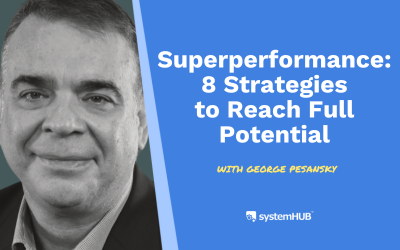PODCAST: S3:E9
Today’s Guest, Mike and Aimee Hamilton
Mike Hamilton is the former visionary and co-owner of Inception Websites. Originally a chiropractor who discovered the power of SEO early in the digital marketing evolution, he led the strategic vision that transformed their small practice marketing into a multi-million dollar company serving the chiropractic industry.
Aimee Hamilton is the former integrator and co-owner of Inception Websites. Known as the systems mastermind, she created and scaled the operational processes that enabled explosive growth while maintaining quality – ultimately impressing their acquirers with systems superior to all their existing companies.
Together, they built one of the most systemized companies in their space—proving that smart strategy and strong systems are a formula for both scale and successful exit.
Interview Takeaways:
1. Systems Must Evolve with Growth Stages
The Hamiltons learned that business systems for scaling and exit require constant evolution. What worked at 15 employees completely broke down at 30-50 employees. Their journey from a literal corkboard system to Podio, and finally to a custom Salesforce implementation, demonstrates that systems must be rebuilt or significantly upgraded at major growth inflection points to prevent operational breakdown.
2. Fresh Eyes Reveal Hidden Inefficiencies
Bringing in their fractional CEO provided the outside perspective needed to spot glaring inefficiencies they couldn’t see from inside the business. A simple question about following up on unsigned contracts revealed they were losing 40% of their sales. This single system change – taking credit cards during the initial sales call rather than waiting for signed paperwork – immediately recovered massive revenue.
3. The Power of Process Documentation and Flow Charts
Creating detailed flow charts of every business process revealed numerous “dead ends” where tasks could stall without anyone noticing. This documentation exercise became critical for building their Salesforce system and ensuring nothing could slip through the cracks. The discipline of mapping every process step-by-step exposed inefficiencies and created the foundation for scalable operations.
4. Due Diligence Preparation Requires Years of System Building
The due diligence process demanded extensive documentation going back to their first six months of business. Companies with poor record-keeping systems face nightmare scenarios during this phase. Having robust accounting systems and clear business management platforms that can easily compile historical data is essential for any business considering an exit strategy.
5. Systems Create Competitive Advantage and Buyer Appeal
Their ability to build top-quality, ranking websites in just 4 hours while competitors needed twice the staff and four times longer became their key differentiator. This operational efficiency made them the most profitable company in their space and highly attractive to acquirers. When buyers evaluated their systems, they concluded the Hamiltons’ processes were superior to all their existing companies.
6. The 10X vs 2X Growth Philosophy
Implementing Dan Sullivan’s concept that achieving 10X growth requires stopping 80% of current activities while elevating the core 20% that drives results. This philosophy guided their systems thinking – using technology and processes to delegate or eliminate the 80% while supercharging their essential 20% activities that generated the most value.
7. Leadership Intensity Must Scale with Systems
Mike learned that his intensive leadership style that worked with 15 employees became counterproductive with 50+ employees. As businesses scale, leadership approaches must evolve alongside operational systems. The same energy and involvement that drives early growth can become a bottleneck and employee satisfaction issue at larger scales.
8. Work Cycles and Completion Drive System Benefits
Their fractional CEO taught them that being “busy” isn’t the same as doing “work.” True work requires beginning a process, executing it completely, and finishing it. Starting multiple projects without completion prevents the compounding benefits that come from fully implemented systems. Only completed systems can build upon each other to create exponential improvements.
9. Systems Thinking Applies Beyond Business Operations
Post-exit, the Hamiltons applied the same systematic approach to managing their 140-acre property, health optimization, and personal projects. Their success demonstrates that systems thinking becomes a way of life that can optimize any area, from business operations to personal wellness and lifestyle management.
10. Strategic AI Implementation for Business Systems
The discussion reveals how business systems for scaling and exit now include AI integration as a competitive advantage. Smart business owners are using AI not as a replacement for human thinking, but as a thought partner to enhance strategic decision-making and accelerate system implementation across their organizations.
Thank you for listening!
Thanks for joining us for this episode. Do you have any questions or feedback you'd like to share? We'd love to hear it! Let us know in the comments section below.
If you enjoy listening to this podcast, please share it on Facebook and leave an honest review on iTunes. We'd love to know what you think.
Remember - the next system we share could be just the one you been looking for, so subscribe on iTunes so you can get the latest episodes as soon as they’re published.

About The Show
Business Processes Simplified
We interview industry experts and have them share their best small business systems and processes. This is the quickest, easiest and most efficient way to build a systems centered business.













